
Evaluation of Mental Health Personal Health Budgets
NDTi were commissioned in November 2018 to fulfil the qualitative aspect of the national evaluation of the Mental Health Personal Health Budgets work.

Everyone’s experience of mental health problems is different and services need to be person-focused rather than process-driven; therefore our work with organisations concentrates on helping transform services to achieve this.
We take the same values-based approach to our work in mental health as we do across all other areas. We believe timely access to care and support that is person-centred helps people to live well. We are committed to the principles of recovery, where people can build a meaningful and satisfying life whether or not they have ongoing or recurring mental health problems. The links between personalisation and recovery are clear and have been embedded in our programme by our recent partnership work with ImROC.
We know that the social determinants of health have a huge role to play in preventing mental illness, avoiding crisis and promoting recovery. So we also focus on promoting health and wellbeing, access to housing, employment and social inclusion. These are the areas people tell us they need to see change. The voice of the person with lived experience is heard and central to all the work we do. Coproduction is one of our key strengths.
Our work is evidence-based, and informed by the work of our own Research and Evaluation Team. We take a pragmatic approach to find out what works, for whom and in what circumstances. We favour these approaches because the outcomes of initiatives may be long-term, complex and influenced by a range of external variables for which it is not always possible to control.
The guiding principles of the Five Year Forward View for Mental Health are clear. Local areas are expected to work together with people with lived experience and their families and carers to deliver the improvements that are wanted and needed. We help organisations to make sure this happens.
Coproduction is a proven method of ensuring that everyone’s voice is heard and given equal value in the design and delivery of local services. We work with partners across an area, including clinical teams, local authority representatives and people with lived experience to design new ways of providing support that are person-centred and evidence-based.
We help organisations sense-check their existing approaches as well as identify areas needing change. We have built on our research in employment support and can offer realistic evaluation to address the questions of what works best, for whom and in what situation.

NDTi were commissioned in November 2018 to fulfil the qualitative aspect of the national evaluation of the Mental Health Personal Health Budgets work.

NDTi has partnered with the PDA Society to help raise awareness and increase understanding of PDA – a profile on the autism spectrum. Following the high profile programme File on 4 about Transforming Care, featuring...

Online or blended training providing practical tools and support to build the resilience of children and young people and those who support them, whatever their role.

What happens when you reimagine adult social support from the ground up? Dr Vicky Mason-Angelow shares what happened in Leeds following a two year pilot.

In this guest blog, Professor Judith Sixsmith, from IncludeAge at the University of Dundee, explores the value of older LGBT+ people and older people with learning disabilities in everyday communities. Inclusion is not just a...
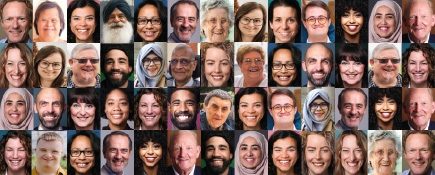
See the person …not a problem needing fixing. Nic Crosby, Small Supports, and Amanda Nally, Community Led Support, explore the need for services to challenge themselves. Are they truly person-centred, or, is it just nice...

The unique and invaluable role that members of the NHS England’s Older People’s Sounding Board play involves not only sharing their life experiences, opinions and knowledge, writes Tony Watts OBE. It’s also demonstrating that maintaining...

Anonymous guest blog: How small acts can make a big difference to neighbours, individuals and communities Winston and Marva live opposite me in one of the Victorian spec. built terraced houses that you see in...

As we start the new year our team is reflecting on the introduction of new mental health legislation. We share some thoughts below.

This guest blog is by Penny Phillips, a member of NHS England's Older People's Sounding Board and National Patient Safety Partner. Penny highlights practical steps to engage people and families in their own care and...

We're delighted to be collaborating with Shared Lives Plus and Community Catalysts on a campaign to highlight a range of proven approaches that are reshaping conversations about social care. Better Now focuses on the transformative...

What was the Older People’s Sounding Board set up for? What is its mission? And what will success look like? Tony Watts OBE is a partner of the NHS Older People’s Sounding Board, which we...
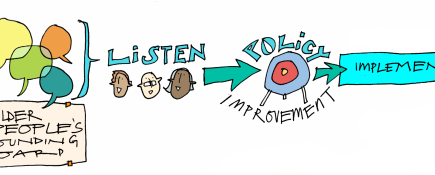
Tony Watts OBE is a partner of the NHS Older People’s Sounding Board, which we facilitate on behalf of NHS England. On International Day of Older Persons, Tony writes about making older people’s voices heard...
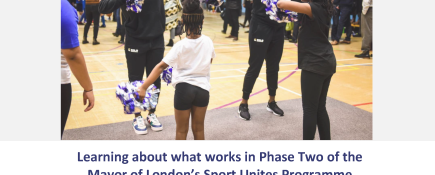
Photo description: a group of women and girls cheerleading in the sports hall with some adults in the background
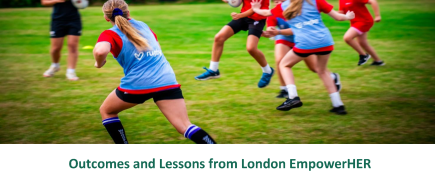
Photo description: a group of women and girls playing rugby

The NDTi Wellbeing Questions Framework is a tool designed to measure key aspects of wellbeing relevant to social care and quality of life.

This report by Dr Victoria Mason-Angelow documents the work and the outcomes undertaken in Leeds by the City Council and ICB partners to develop new small support organisations for people with learning disabilities and/or autistic...
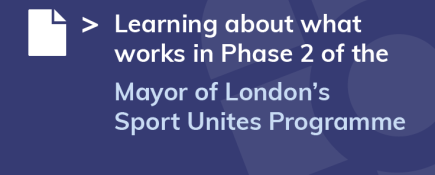
This report presents the interim and early findings from the first two stages of the National Development Team for Inclusion’s role as the Learning and Evaluation Partner for Phase 2 of the Sport Unites Programme...


Young people (aged 16 plus) with additional support needs come together to support each other and share common issues and concerns.
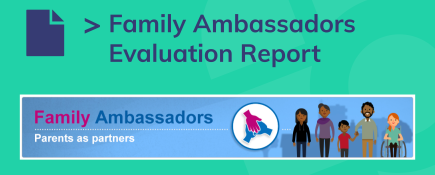
In 2019 the NHS formed a Quality Improvement Taskforce with the aim of improving Children and Adolescent Mental Health (CAMHS) in-patient services. One key outcome was the Family Ambassador programme. The primary purpose of the...
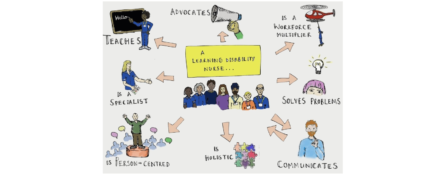
NHS England and Improvement (NHSEI) Learning Disability Team funded NDTi to do two pieces of work to explore the role of learning disability nursing in England. The purpose of this work was to give a...
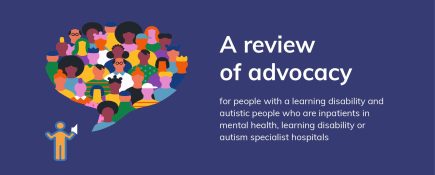
This report covers in depth research about advocacy for people with a learning disability and autistic people who are inpatients in mental health, learning disability or autism specialist hospitals.
Kate Linsky
Email: Kate.Linsky@ndti.org.uk
Thank you for taking the time to subscribe.